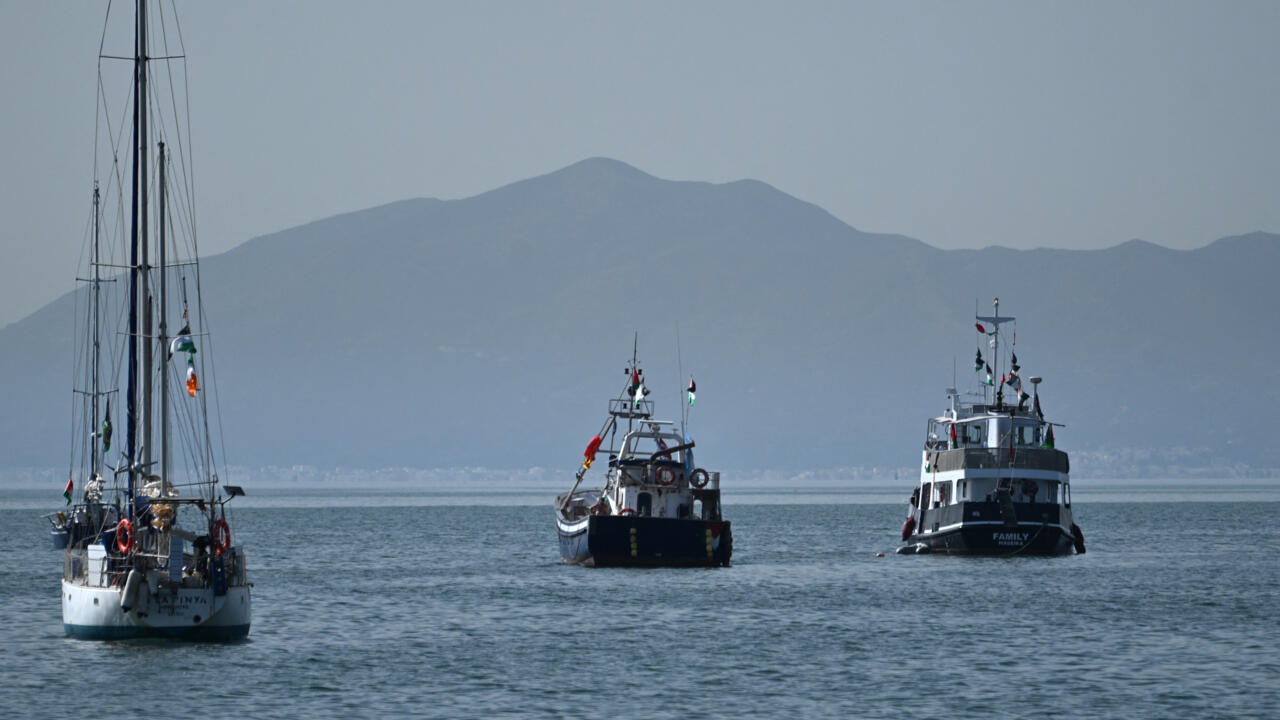
NGOCSTIP – Flotilla organizers have reported alarming developments as a Gaza-bound humanitarian convoy faces hostile interference in the Mediterranean. Explosions were heard, drones were seen circling the sky, and communications were jammed aboard several vessels near the coast of Greece. The Global Sumud Flotilla (GSF), which launched this mission with the goal of delivering aid and raising awareness about the blockade of Gaza, has claimed that the fleet has become a direct target of psychological warfare. Despite these threats, the activists insist on continuing their mission undeterred.
According to GSF statements, the flotilla has faced a multi-pronged assault. Activists have observed more than a dozen drones circling their vessels, dropping unknown objects while disrupting communication systems. Loud music jammed the flotilla’s radio frequencies and disrupted communication. The Spectre boat and several other vessels recorded clear explosions during the incident. Yasemin Acar, a German human rights activist, confirmed through her social media that attackers struck five boats. Thiago Avila, a Brazilian activist, stated that drones hit four vessels shortly before another explosion echoed nearby. The flotilla, which includes prominent participants like Greta Thunberg, continues its voyage in defiance of these aggressive encounters.
“Read about: The Palestinians Just Got Recognized, Now Trump Has Something to Say at the UN!”
Members of the flotilla believe the current tactics aim to undermine their mission through psychological pressure. Several activists describe strange objects dropping near or onto their boats. They struggle to maintain communication with other boats and media due to ongoing interference. Videos from the GSF show explosions and loud disruptions as they occur in real-time. These incidents seem designed to disorient and pressure the convoy into backing down. Despite the escalating danger, the activists stay determined to deliver aid and continue toward Gaza.
The GSF previously reported similar incidents earlier this month. While stationed in Tunisia, the convoy claimed that drones targeted them for two consecutive days. No one suffered injuries during those encounters. However, Tunisia’s interior ministry rejected at least one report as false. The repeated attacks have increased concern about the safety of humanitarian convoys. Organizers insist that such actions, even if meant to intimidate or discourage, still endanger lives and reveal hostility toward peaceful missions.
Despite the tension, the flotilla remains undeterred. It currently consists of 51 vessels positioned near the Greek island of Crete. Their goal remains clear: to break the ongoing blockade of Gaza and deliver essential supplies. This is the third attempt in recent months, with two prior flotillas being blocked in June and July. The Israeli government has stated that it will not permit any convoy to reach Gaza by sea. Meanwhile, the global community continues to monitor the situation. The presence of international activists such as Greta Thunberg has amplified media coverage, putting additional pressure on authorities to act with caution. The resilience of the flotilla sends a powerful message about solidarity and humanitarian commitment.
This article is sourced from www.theguardian.com and for more details you can read at ngocstip.org
Writer: Sarah Azhari
Editor: Anisa